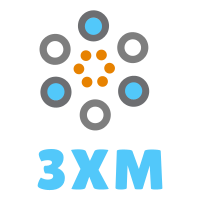
AI has taken the world by storm. Organizations around the globe and across industries are ready to embed AI across their groups and business functions. However, despite the increased adoption of AI, latest research from IDC has found that 50% of AI projects fail for one in four companies on average, and the two leading reasons for the AI project failing are a lack of required skills and unrealistic anticipation. (Artificial Intelligence Global Adoption Trends and Plans, June 2019). Plainly, there’s so much potential, but barriers are preventing organizations from undergoing the transformative power of AI.
As a brand new decade begins, DataRobot wants to enable all organizations to become fully AI Driven, and we would like to help quicken this journey for enterprises around the globe. Towards this end, we met with industry leaders to compile a record of the ten keys to AI victory. Our findings uncover the successes and challenges companies had with AI and the way organizations have leveraged what they have learned to push future AI achievement.
Therefore, who are the principal players in this new decade of AI achievement? This report concentrates on a few key roles and the significant part they play in attaining AI achievement:
Executives
Early Adopters
Team Players
Executives
If you want your organization to become AI driven is critical. Executives will need to comprehend how AI can support their business so as to effectively lead the charge and set the tone for the rest of the business. If respondents do not believe and understand that AI will not feel comfortable bringing it into their organization. Consequently, specialised roles, like Chief Digital Officer or Chief Analytics Officer, have been emerging to offer insight and help drive adoption across the company.
There are various barriers within organizations which can prevent executives from effectively implementing AI solutions. International companies which have divisions spread out over different locations might face challenges with getting everyone on the same page. Large international enterprises are hard and complicated to navigate. Politics is the biggest challenge, multiple classes, different nations, clarifies an executive from an electronics firm. Successful executive sponsorship is the only ways to break through these barriers.
Early Adopters
As the saying goes, the early bird catches the worm. This early bird mindset is just what makes early adopters of AI crucial to achievement. Going into the unknown could be daunting, but businesses who do their research and also believe in the value of AI can benefit, whereas those who are slower to adopt or do not adopt whatsoever will fall behind.
Irrespective of the prospect of enormous value from AI, McKinsey observes that many organizations efforts are falling short, with a majority of companies only piloting AI or using it in a single business processand therefore gaining only incremental benefits. It is not sufficient simply to aviator an application or employ AI to only a single use case.
Team Players
AI adoption can transform every area of a business, ranging from marketing efforts to customer experience. And in a world where the supply of data scientists doesn’t meet the demand for AI solutions, every player counts and can make a difference. To build all the AI that a company needs in order to beat its competitors means that everyone must get on a team and contribute.
We see this in the rise of the citizen data scientists who bridge the gap between data science knowledge and business insight. “Our data scientists trained all the other experts to be citizen data scientists. In six months, we had an expert team of 50 people,” explains a Chief Data and Analytics Officer from the insurance services sector. Automation enables even more non-technical people to leverage AI, further driving the democratization of data science.
AI in 2020 is for Everyone
In 2020, everyone can be a key player in AI success. Executives set the tone for AI adoption and implementation across an organization, early adopters ensure survival in the AI revolution, and automation empowers the new wave of non-traditional citizen data scientists. Our report has much more to share about how to become an AI-driven enterprise and how to drive AI success in 2020.
_by Bill Hobbib


Recent Comments